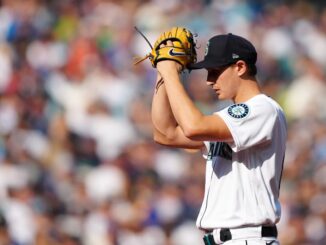
Once a year, thousands of baseball fans flock to the small town of Cooperstown, New York to see legends of the game give a speech, unveil a plaque that semi-resembles them, and get congratulated by their fellow legends of America’s pastime. Baseball fans undoubtedly care more about their Hall of Fame than any other sport. In a sport loved by historians, it makes sense that fans love to honor all-time greats. But today, we sit in an uncomfortable intersection for Hall of Fame voting; where Twitter clashes with tradition, saber metrics collides with folklore, and stupidity reigns supreme.
The Baseball Writers’ Association of America (BBWAA) has been around since 1908 and founded the Hall of Fame in 1936. The first class of inductees featured Ty Cobb (98.2%), Honus Wagner (95.1%) and Babe Ruth (95.1%). Yes, you are reading that correctly. Babe freaking Ruth wasn’t voted a Hall of Famer by one of every twenty voters. This strange behavior by writers has persisted since the Hall’s inception and doesn’t look to be ending anytime soon.
There are currently 422 voting members of the BBWAA. They range from TV personalities that occupy bad daytime ESPN shows to less famous people such as Joe Stiglich of the Contra Costa Times. It’s understandable that back in the Great Depression era it was decided that baseball writers had the best perspective of who belonged in the Hall of Fame. Without television, the internet, or even Ken Griffey Jr. Baseball for N64, writers were clearly the best equipped individuals for the job. It’s not a tough argument to make that this is no longer the case. Steven Souza Jr. of the Tampa Bay Rays agrees, as he recently put a Rays beat writer on notice for his snub of Edgar Martinez. With newspapers dying and beat writers covering a host of assignments, it’s plan to see that many voters are under-qualified to be making decisions regarding players they’ve never seen play, in a sport they may have never themselves played or coached.
For those that followed the Edgar Martinez saga over the past handful of weeks, Twitter was the predominant platform. Each writer that revealed their ballot had it blasted over the Twitterverse for all to critique. Percentages were tracked, votes were counted, math was done. Would Edger get in? This all seemed silly, fixed, and disingenuous. Twitter debates ensued over whether a DH should be eligible. Mariano Rivera voiced his opinion that Edgar was the best hitter he ever faced. Votes were tallied. And some writer named Randy Galloway determined Edgar wasn’t a Hall-of-Famer THIS year in his eyes, but would be NEXT year. How that decision is arrived at, one can only speculate. But, it would be naïve to think that some of Randy’s BBWAA peers don’t share his same school of thought.
Baseball writers voting for the Hall of Fame is the equivalent of the general manager from each AMC Movie Theatre voting for the Oscars. Not this years Oscars, but specifically for all movies that left theaters at least five years ago.
The process of deciding who belongs in Cooperstown is due for some tweaking. Ideas? Former players and executives, 20-30 predominant baseball historians (ie Tim Kurkjian), and current Hall-of-Famers should comprise the voting. A popular fan vote could even contribute five to ten percent of the equation. Whoever is voting should all do so on the same day. No more vote counting and tracking, where ballots are revealed prior to everyone finishing their voting.
The system will never be perfect, but there is room for improvement. A change in process isn’t likely to happen soon, or ever. The BBSAA started the Hall of Fame and will be reluctant to give up even a portion of their power. Until that hypothetical day occurs, Edgar is on the fence to make it, Mike Trout won’t receive 100% of the vote in 2035, and beat writers will continue to cast their ballot based on what will get them trending on Twitter and possibly a guest appearance on Around the Horn.




